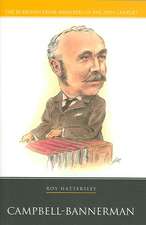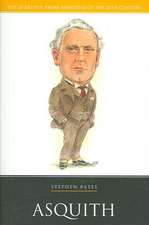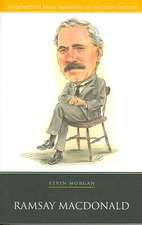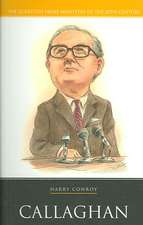Concepts of Leadership in Western Political Thought
Autor Mostafa Rejai, Kay Philipsen Limba Engleză Hardback – 29 iul 2002 – vârsta până la 17 ani
Preț: 283.29 lei
Preț vechi: 413.40 lei
-31% Nou
Puncte Express: 425
Preț estimativ în valută:
54.21€ • 56.01$ • 45.12£
54.21€ • 56.01$ • 45.12£
Carte tipărită la comandă
Livrare economică 26 martie-09 aprilie
Preluare comenzi: 021 569.72.76
Specificații
ISBN-13: 9780275978013
ISBN-10: 027597801X
Pagini: 144
Dimensiuni: 140 x 210 x 15 mm
Greutate: 0.3 kg
Editura: Bloomsbury Publishing
Colecția Praeger
Locul publicării:New York, United States
ISBN-10: 027597801X
Pagini: 144
Dimensiuni: 140 x 210 x 15 mm
Greutate: 0.3 kg
Editura: Bloomsbury Publishing
Colecția Praeger
Locul publicării:New York, United States
Notă biografică
MOSTAFA REJAI is Distinguished Professor Emeritus of Political Science at Miami University, Ohio. Rejai is the coauthor, with Phillips, of seven other books on leadership.KAY PHILLIPS is Professor of Sociology, Gerontology, and Anthropology at Miami University, Ohio.
Cuprins
PrefaceIntroductionGreek Leadership Thought Before PlatoPlato and the Philosopher-KingNatural Law as Leadership AgencyChristianity as Leadership AgencyMachiavelli and the PrinceSocial Contract as Leadership AgencyCarlyle and the HeroNietzsche and the SupermanWeber and Charismatic LeadershipFreud and the Ego IdealErikson and Identity CrisisConclusionAppendix: Leaderless SocietiesBibliographyIndex













